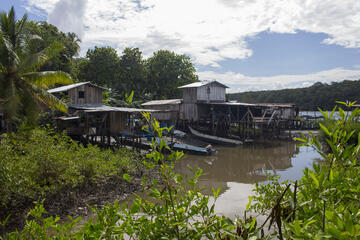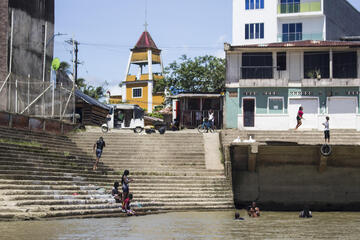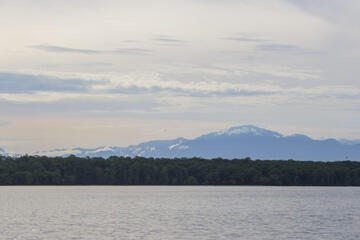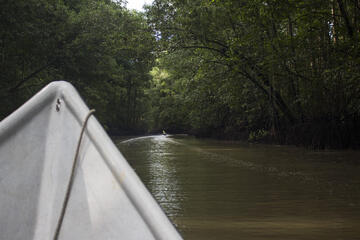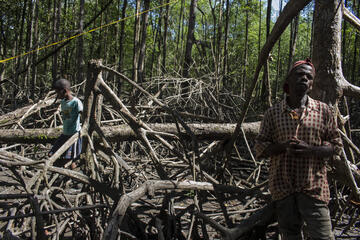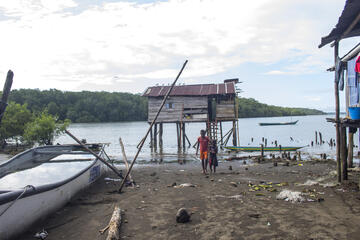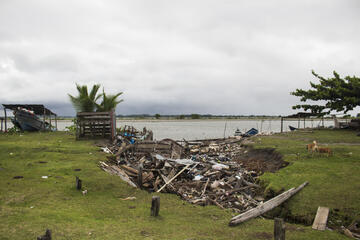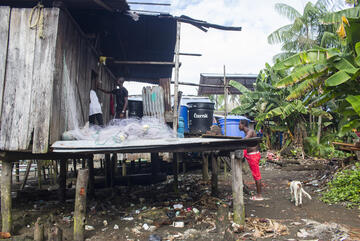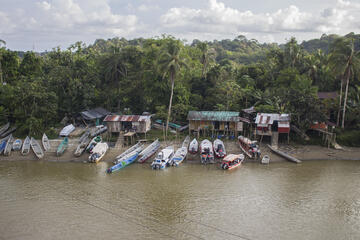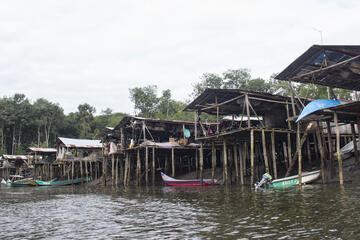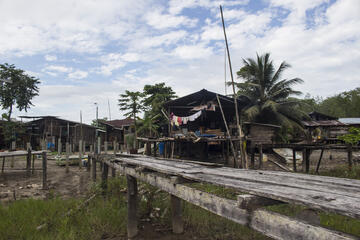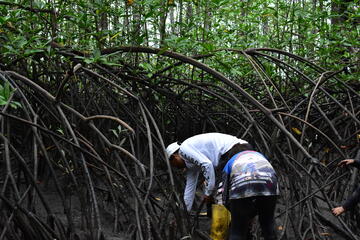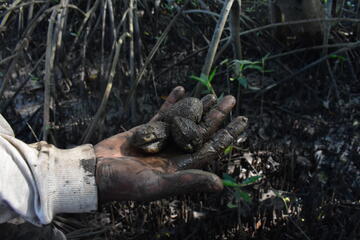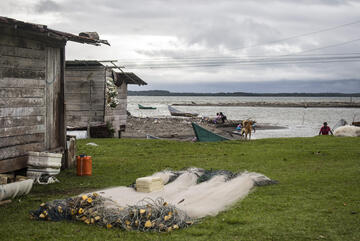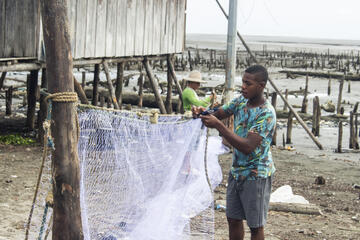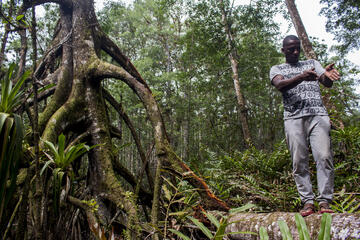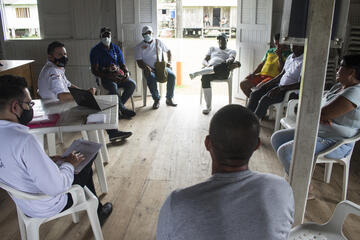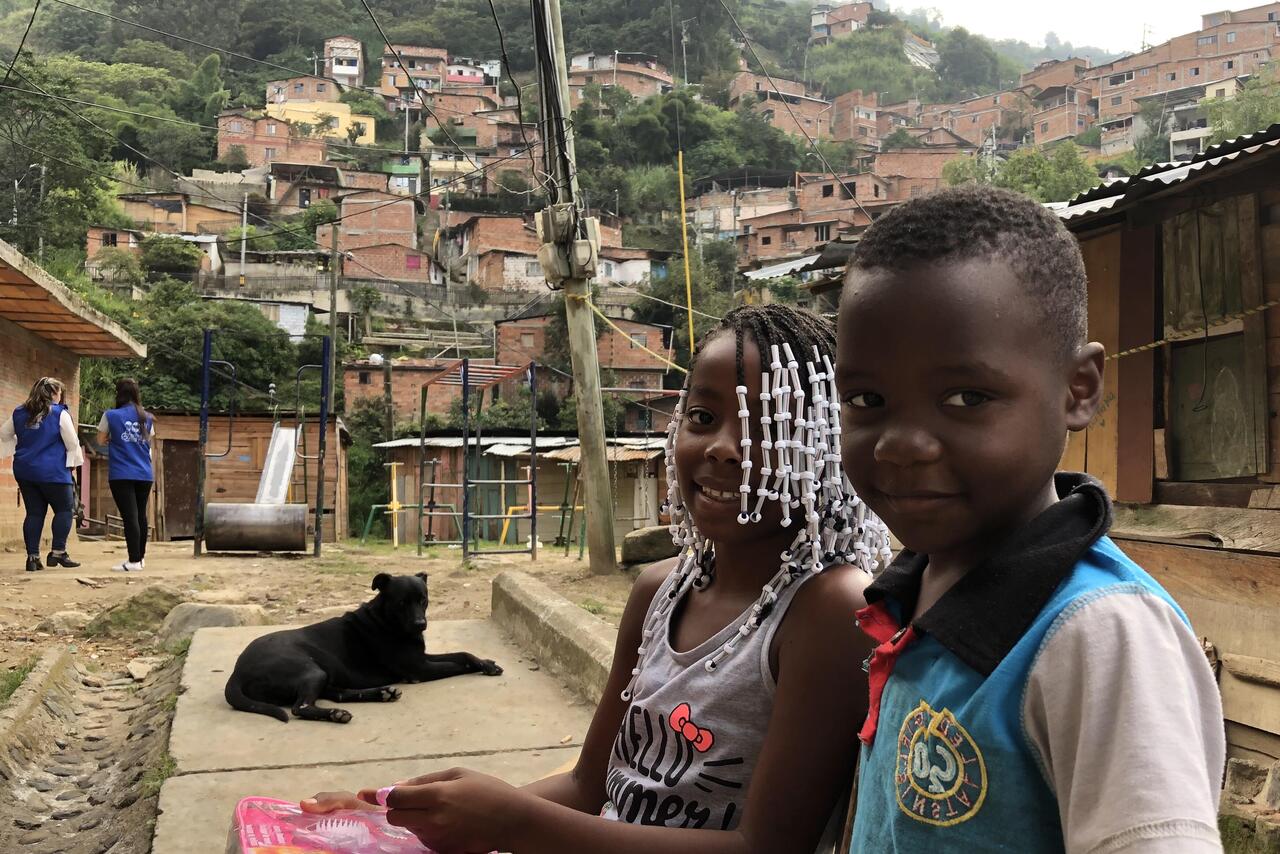Colombia: Unique ecosystem at risk
Berlin / Bogotá, 10 May 2021
The mangrove forests on Colombia's Pacific coast are one of the most biodiverse ecosystems on our planet. But climate-related changes, the pollution of the oceans, the effects of the armed conflict and widespread poverty endanger the environment and the people living there in the same way. Our local partner organisation A-kasa supports the people in sustainably securing their livelihoods, which are closely linked to the state of the ecosystem.
Only a few kilometres of flat land separate the high mountain range of the Andes from Colombia's Pacific coast. Countless rivers run through the narrow coastal strip, which consists of dense jungle and mangrove forests. Those who find themselves here need enough time for hour-long boat trips and a knowledgeable helmsman who knows the labyrinth of estuaries and the tides.
Environmental influences endanger livelihoods
Despite the remoteness, there is no longer any question of untouched nature: "The hunt for cormorants has led to the destruction of many hectares of mangrove forest," says Celso Caicedo Sinisterra from the village of Timbiquí, who has always lived from fishing and mussels. He trudges between fallen trunks and points to the ground. "We used to collect wild mussels here and fish because the fish fed on the remains from the birds' nests above," Celso explains the sensitive ecosystem. Today, the trunks fall victim to clear-cutting in pursuit of the birds or timber traders.
Deforestation is just one problem among many: Illegal gold mining and increasing plastic pollution of the rivers are taking their toll on the environment. Soil quality is declining and more and more animal species are disappearing. In addition, armed groups control large parts of the remote region and drug smuggling routes. State structures and control, on the other hand, hardly exist in the areas inhabited mainly by Afro-Colombians.
Too few mussels, too much poverty
The communities have adapted to the humid climate: you can find houses on stilts, people live from fishing, grow coconuts or do forestry. Women in particular often earn their living by collecting mussels, the so-called "pingüar". To do this, they go into the mangroves at low tide to pull the mussels out of the mud. It is important to collect only the large mussels in order not to endanger the survival of the species. But declining mussel stocks meet poverty, creating a vicious circle. In order to make a living, they also have to collect smaller mussels. This endangers their survival.
To reverse the trend, A-kasa supports people like Celso in restoring the mangroves. "Once we have marked the zones, we plant new seedlings every 50 centimetres," Celso explains. "If people and animals don't enter the area, the saplings can reach a stately size in a year and a half and then the recovery of the soil begins and with it the return of crabs, lizards and molluscs."
Protection and reforestation of mangrove forests
The goal is to reclaim about one square kilometre of mangrove forests together with three communities after the rubbish has been removed there. In order for this effort to be sustained, close cooperation with local governments, institutions and cooperations is being sought. For example, the environmental plans of the communities are to be recognised and the forests are to be placed under protection to enable sustainable management of the zones. "People know the problems, but also solutions to overcome the situation," says Kirsten Wesenberg, who accompanies Johanniter projects in Colombia.
We are committed to ensuring that these local initiatives receive extensive support in order to create long-term prospects for the local population.
In this way, already existing plans for ecotourism are strengthened and the infrastructure for it is improved. In all three communities, storage and processing structures are being created and renewed so that the communities' products also reach the markets and secure income. "One secures the other. People and the environment are particularly closely linked in this region," says Wesenberg.
Further measures within the project
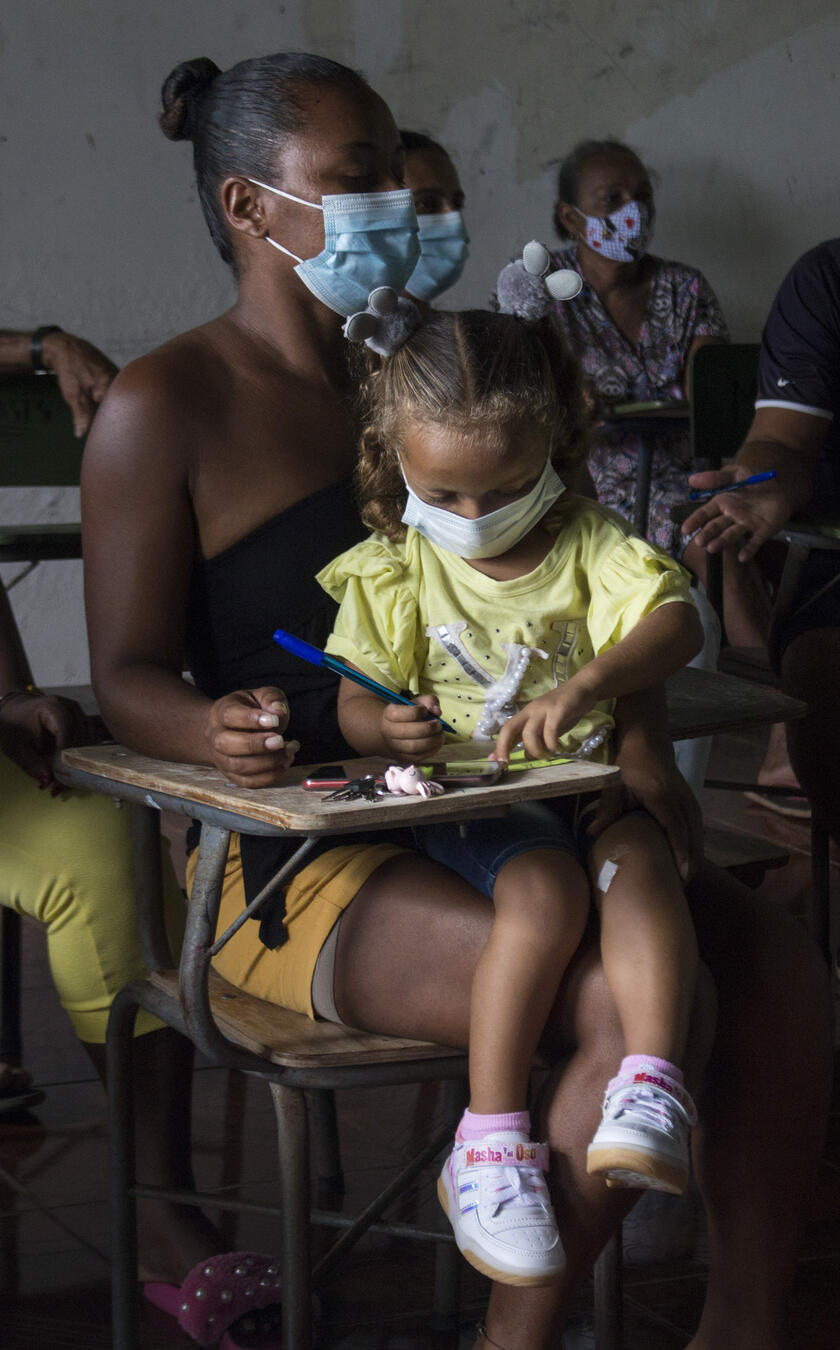
Since December 2020, the project has been implemented in Ecuador as well as Colombia with financial support from the German Federal Ministry for Economic Cooperation and Development (BMZ). It aims to promote sustainable rural development and resource conservation in the Pacific region of both countries until the end of 2023. To this end, we support our local partners Fundación Heifer in Ecuador and Fundación A-kasa in Colombia, which specialise in strengthening community-based structures. The project objectives in the communities of Timbiquí, La Tola and Santa Bárbara - Iscuandé in Colombia at a glance:
